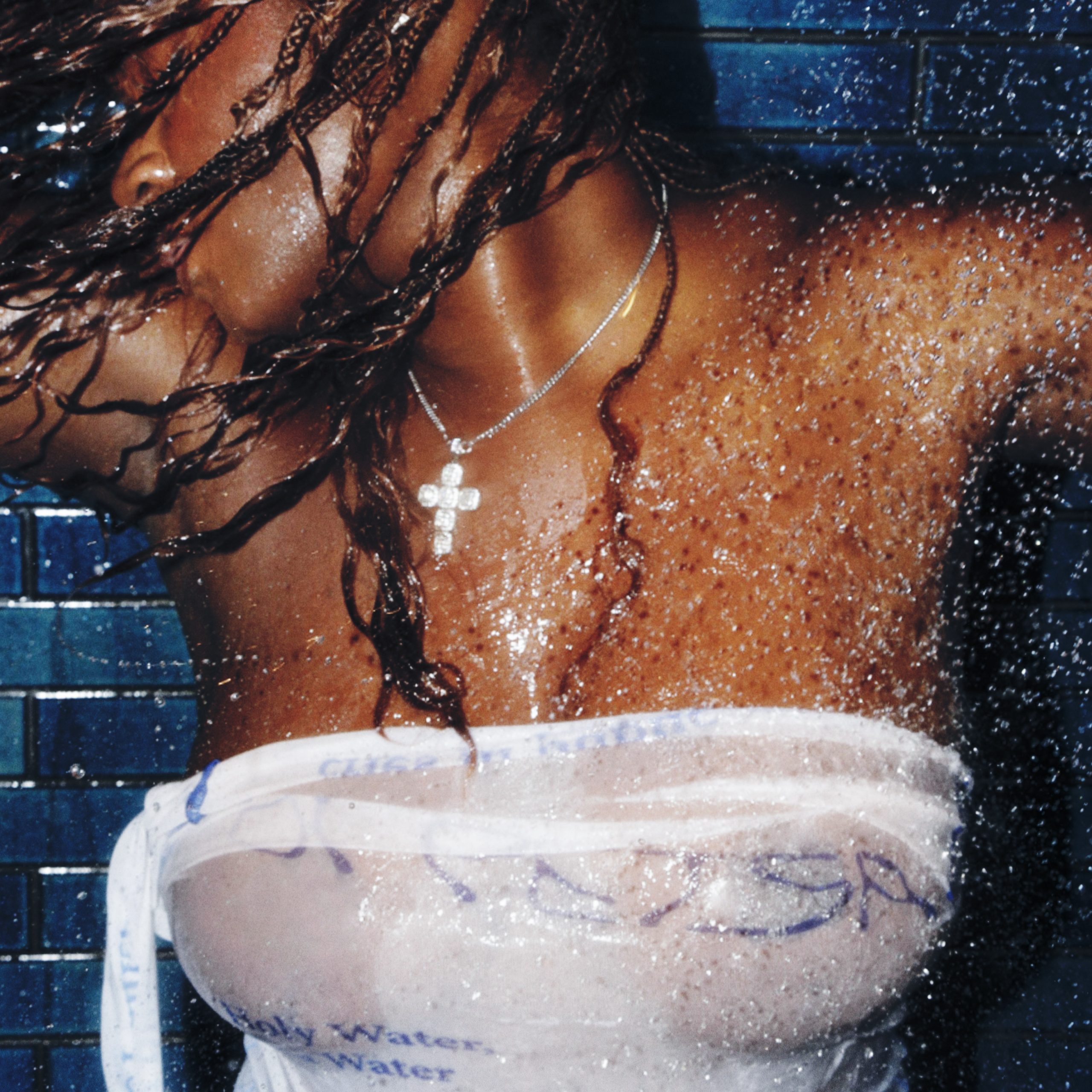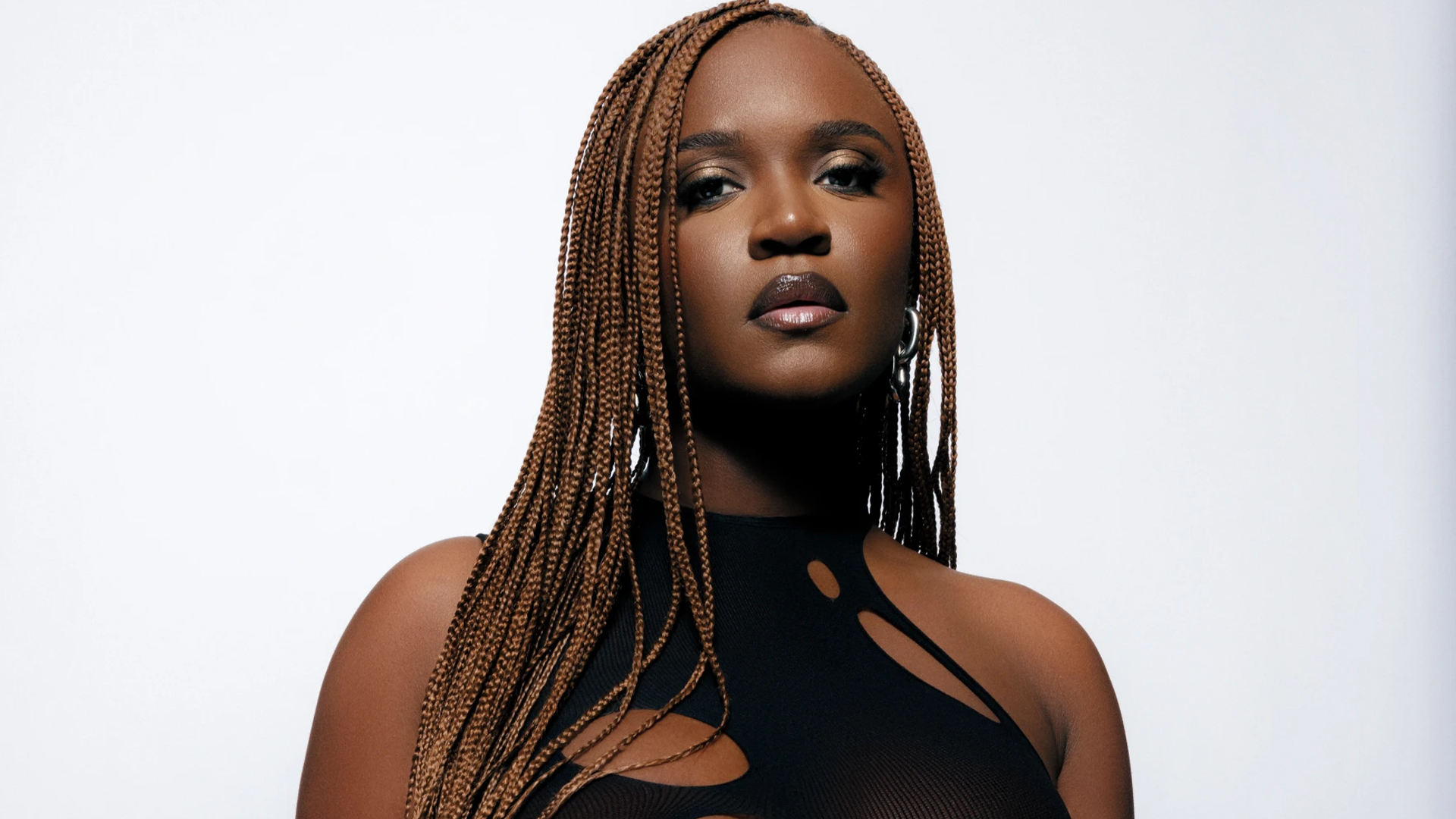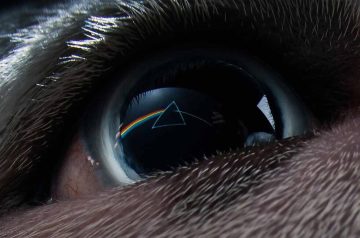★★★★☆
Amaarae, born Ama Serwah Genfi, was firmly put on the musical map after the release of her breakthrough debut album THE ANGEL YOU DON’T KNOW back in 2020, with its lead single ‘SAD GIRLZ LUV MONEY’ racking up millions of streams. Since then, the singer has burrowed away in the studio, joined by her close-knit production team of talent, including KZ Didit, Kyu Steed and Yves Rothman, taking the time to hone her craft and re-emerge with an even more fearless sound.
‘Angels in Tibet’ marks this fearlessness, opening the album with a punchy cadence mixed with soft, sugary vocals over a hard-hitting beat, shattering the strumming atmosphere created by the instrumental introduction ‘All My Love’.
Perfectly synchronising the album’s release with the arrival of summer, Fountain Baby can already safely champion itself as an album to soundtrack the season. The album’s astrology-themed third single ‘Co-Star’ brings a warmth, with its incredible orchestration of rain-like cascading harp plucks over infectious African rhythms. A standout in this sense is the dancehall-infused, synth-heavy ‘Princess Going Digital’ where the singer pleads, “take me off the streets.” ‘Big Steppa’ and ‘Aquamarine Loves Ecstasy’ are both enveloped in the same sun-struck haze as ‘Co-Star’, with Amaarae’s distinctive vocals flowing over a seamless, jazz-infused medley of horn embellishments, long familiar to the Afropop genre, where Amaarae joins the continent’s greatest musical acts of today, alongside the likes of Burna Boy, Wizkid and Tiwa Savage.

Undoubtedly, the whole orchestration of the album demonstrates a far more bold approach from Amaarae. Whilst her previous album was laden with more computer-based beats, Fountain Baby goes global with its instrumentals. The theatrical ‘Wasted Eyes’ features a string introduction recorded by a 13-piece London orchestra, blended with Japanese folk song ‘Battaki’ by Umeko Ando and a West African Kora instrument, while the bridge on ‘Counterfeit’ features a Senegalese folk instrumentalist. This meticulous layering of influences adds a rich texture to the album, and rectifies the genre of pop away from its, too often, Western-centric focus.
‘Counterfeit’ bursts with swagger with its catchy hook coloured by Amaarae’s vocals flushing out the snappy line “Big bank walk, big bank talk”, while the double entendre of ‘Wasted Eyes’ sees the singer profusely refusing adoration from a troublesome lover over blasting gunfire warnings. These tracks, followed by ‘Disguise’, evoke a noughties nostalgia, recalling a history of cool girl’s past (think of MIA’s ‘Paperplanes’, Brittany’s ‘Slave 4 U’, Rihanna’s ‘Run This Town’). Although Amaarae credits these influences, she refuses to live in the past, reimagining the spirit of these Y2K sensations within a 2023 sound.
Negating the use of any rule book, Fountain Baby dives into just about every genre, as the singer proves herself a pop princess of all trades. ‘Sociopathic Dance Queen’ packages itself as a groovy indie-pop banger, while ‘Sex Violence Suicide’ commences with a sultry intimate lullaby. The singer glides through emotional vocals over a soft guitar, with her use of compression only adding to this emotion, as each auto-tuned note breaks under her whispers.
The track spins 180 for the last minute, as Amaarae comes through swinging with an unexpected, full-blown punk segment. Under the guise of ‘Sex, Violence, Suicide’, with the lyrics flitting from a lovestruck cradle to bratty chants of “If I can’t get my way / Then you can’t get your way” over thrashing guitars, I think the only uniting factor to solicit putting them on the same track is their pure opposition. Although they’re both bangers in their own right, I wish there was a transition like the iconic Frank Ocean ‘Nights’ switch-up to acclimatise us for the latter part.
The project comes to a close through religious imagery. ‘Water to Wine’ opens Amaarae up to a lover, (“Call me for tongue in tongue / Want when you want, when you want”), while the sultry close ‘Come Home to God’ sees the singer returning to indie Amaarae, signing-off with punk-esque chants of “And she want it, want it.”
Fountain Baby is the perfect demonstration of Amaarae’s complete refusal to be put in a box. Whether she’s solely grounded in her Ghanaian foundations or throwing them out of the window in place of rock n’ roll, Amaarae succeeds in just about everything she puts herself to. Her trademark style and iconic vocals permeate every corner of the project, resulting in a whirlwind sonic experience devoid of any dull moments. With a fearless embrace of experimentation, exemplified by the project’s lack of features, this only signals an extremely bright trajectory for Amaarae – a journey everyone needs to be on board for.





